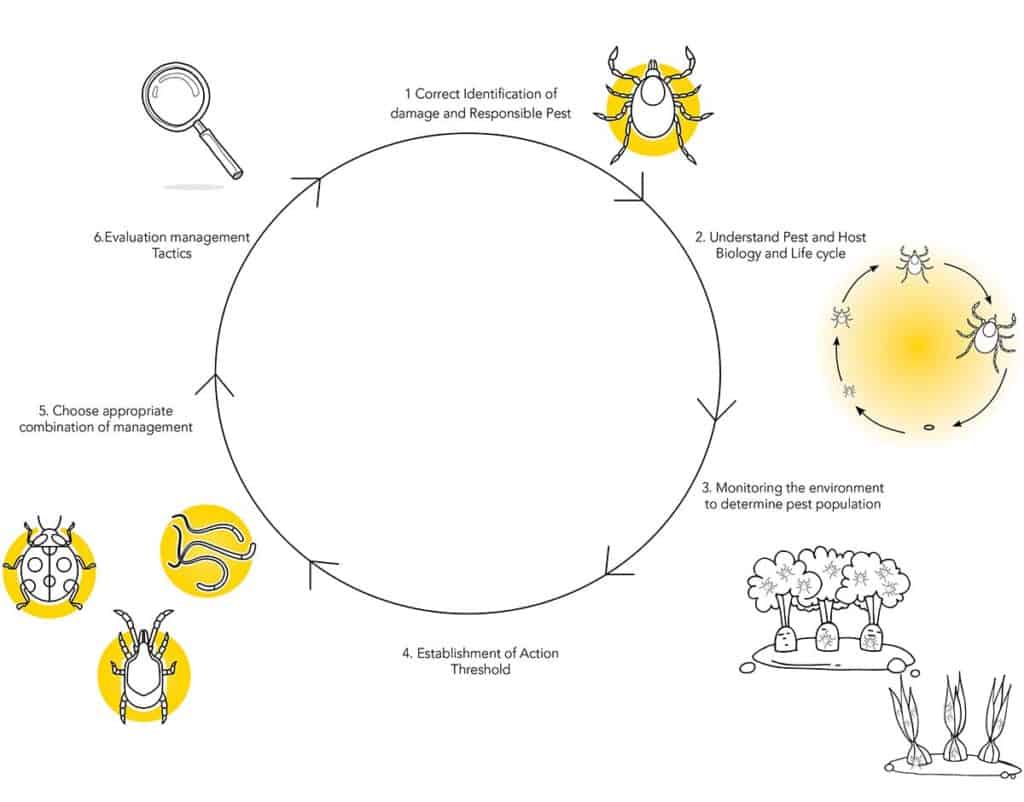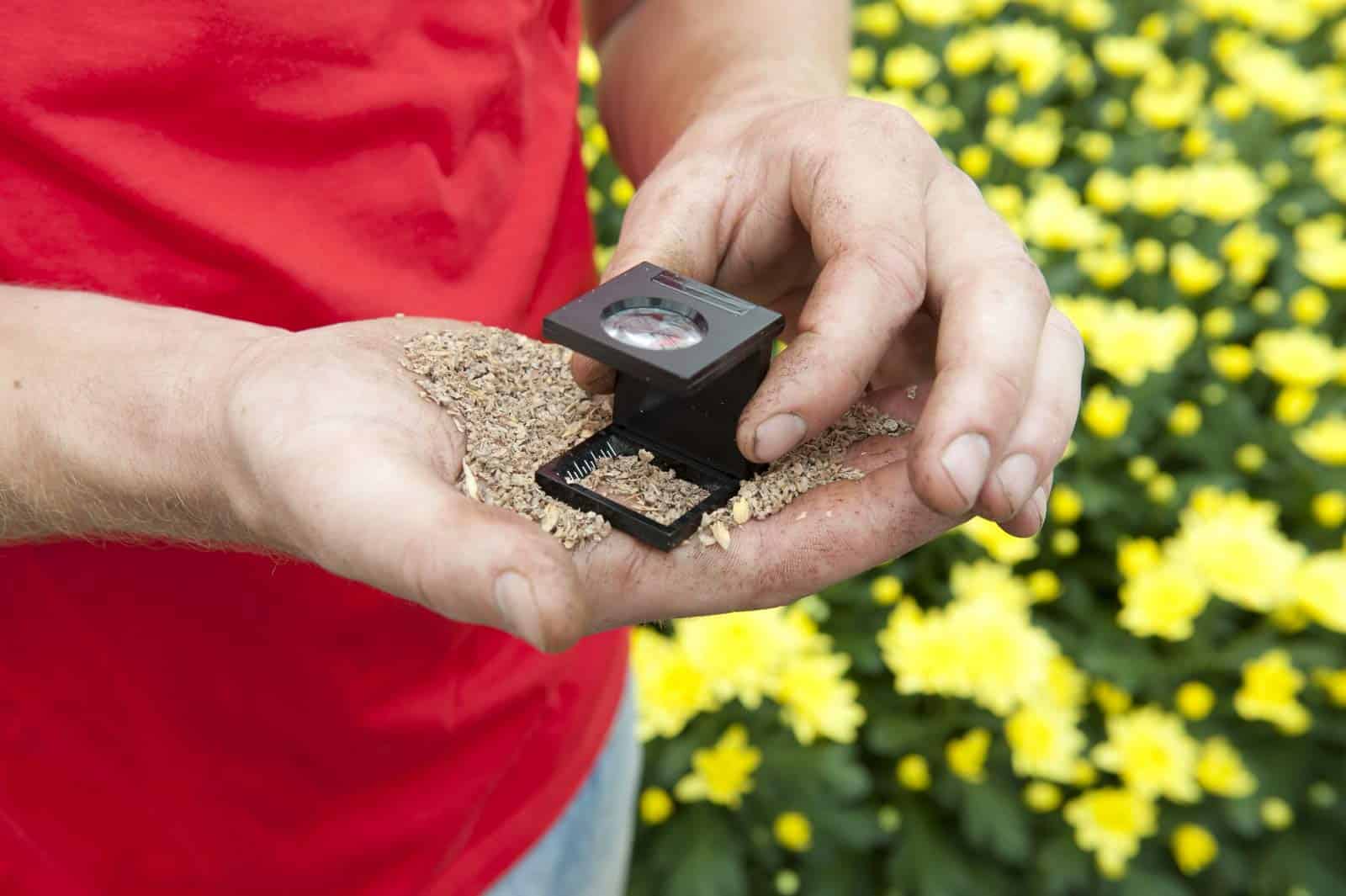Integrated Pest Management (IPM) is a philosophy of agricultural crop management that looks to create a system of preventative cultural, physical, biological and chemical controls for pest, disease and nutrition challenges in crops. The aim of the philosophy is to grow crops sustainably while protecting the health of the consumers, workers and the environment and Dudutech offers a range of these IPM products for use on a wide variety of farm types.
What is Integrated Pest Management (IPM)?
Cultural Control
Growing practices which prevent establishment, survival, and reproduction of pests. Examples include:
- Cleaning of equipment,
- Weed management,
- No-till or zero tillage,
- Media sterilisation,
- Nutrient and soil management (RHIZATECH, pHUSION, TRIDENT, RIGEL-G, SIRIUS, EZYFLOW).
Mechanical and Physical Control
Exclusion or trapping of pests using physical barriers and mechanisms. Examples include:
- Attract and trap mechanisms,
- Sticky cards (STICKTECH YELLOW and BLUE)
- Roller traps (OPTIROLL),
- Hanging traps (DELTA TRAP),
- Pheromone lures.
- Plant-free buffer zones,
- Constructed growing areas
- Greenhouses,
- Tunnels,
- Indoor grow houses.
Biological Control
Use of natural pest predators, antagonists and beneficial organisms to manage pest populations. Examples include:
- Predators (AMBLYTECH, AMBLYTECH C, HYPOTECH, MONTECH, PHYTOTECH)
- Parasitoids (DIGLYTECH, ENCARTECH)
- Entomopathogenic Nematodes (NEMATECH S, NEMATECH H, SLUGTECH)
- Entomopathogenic Fungi (BEAUVITECH, LECATECH)
- Nematophagous Fungi (MYTECH)
- Beneficial Soil Fungi and Bacteria (TRICHOTECH, BACTECH)
- Viruses (HELITEC)
Chemical Control
Involves the intelligent use of insecticidal soaps, insect growth regulators, botanicals and selective less toxic pesticides. Synthetic chemical pesticides are used only when needed and play more of a supportive role, assisting in more effective, long-term management of pest populations. Examples include:
- Botanical extracts (NEMGUARD, SULFATECH)
- Soaps (PROTEC K)
PRINCIPLES OF INTEGRATED PEST MANAGEMENT (IPM)
The IPM philosophy not only focuses on existing pests challenges but also on reducing pest invasions, emergence and resident populations. This approach takes into account past and future crops as a part of the crop protection strategy.
A successful IPM program focuses on the following implementation approach:

- Diagram of Integrated Pest Management (IPM) Implementation
- The grower, agronomist or Dudutech Technical Lead must correctly identify the pest or disease and
- understand their biology.
- The crop needs to be monitored or scouted to determine the scale and phase of the outbreak and
- establish a set of conditions that determine when intervention should be applied, called an Action Threshold.
- The grower then chooses an appropriate combination of IPM products for use on the crop,
- Results are evaluated and the outcomes are considered in the following strategy.
IPM is not a single pest control method but rather an integration of pest management strategies and good agronomical practices.
Benefits of Integrated Pest Management (IPM)
- Reduces reliance on harmful chemicals
- Promotes the health of consumers, farmers and the environment
- Inherently promotes good plant and soil health practices
- Positive effects on the health of plants and the crop yield
- Avoids chemical resistance development issues
- Usually no Minimum Residue Limits (MRL)
- Usually no Post Harvest Interval (PHI) and no Re-Entry Interval (REI)
- Designed to work with standard crop care equipment
- Wide coverage of important crop pests
The individual IPM products can be grouped according to their technique. Below are some examples of our IPM products.
By using IPM, growers help to make agriculture safer for consumers, farmworkers and the environment alike.
Case Study:
Dudutech at Flamingo Horticulture
Dudutech, before being acquired by Bioline Agrosciences in 2021, was the embodiment of Flamingo Horticulture's ethic of long-term sustainability and their commitment to producing products that contribute positively to the health and wellbeing of society. Supplying 17 different indigenous biological control products to the Flamingo farms, Dudutech helped instil a culture of low pesticide farming. By identifying the major causes of pesticide use and designing integrated biological solutions to reduce reliance on these chemicals, Dudutech facilitated a 90% reduction in synthetic pesticide use in roses between 2003 and 2013.
The increase in soil fertility and reduction in pesticide use has brought about other, excellent benefits for horticulture. Spraying with synthetic pesticides stresses plants and reduces photosynthetic activity and plant growth. With fewer sprays in the crops, there is an increase in production and quality; bigger, shinier, more disease-resistant leaves, and better post-harvest storage characteristics. Improved soil fertility resulting from a diversity of beneficial organisms and extra organic matter creates a living soil that interacts positively with the plants, increasing root volume, fertiliser and water uptake, and growing a stronger plant that is more productive and resistant to diseases. This reduces reliance on synthetic fertilisers and results in a higher nutrient value product with better storage properties.


